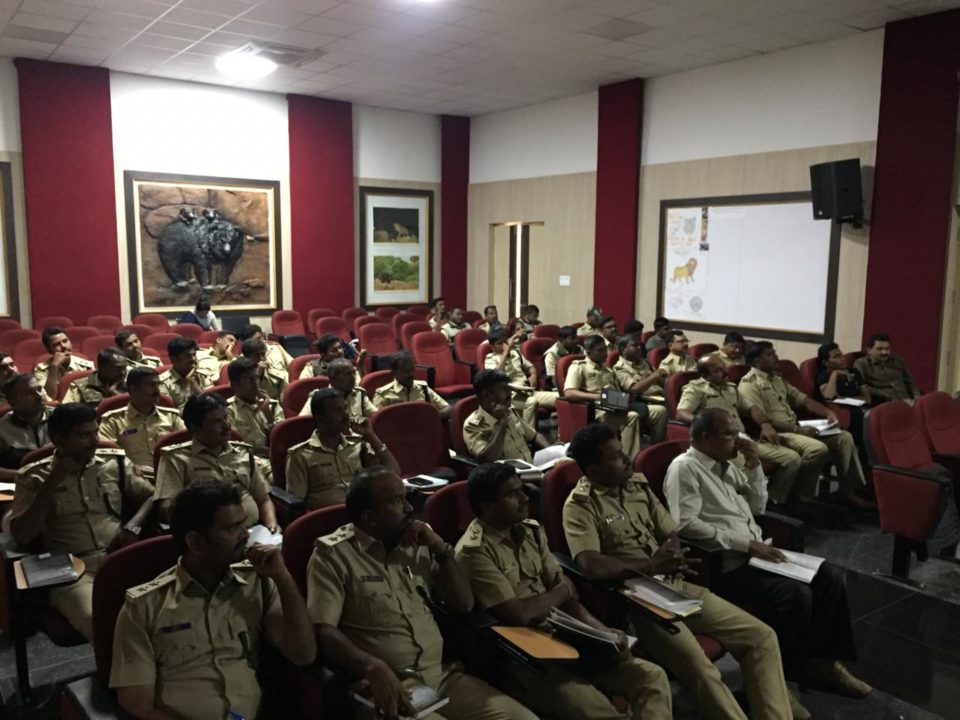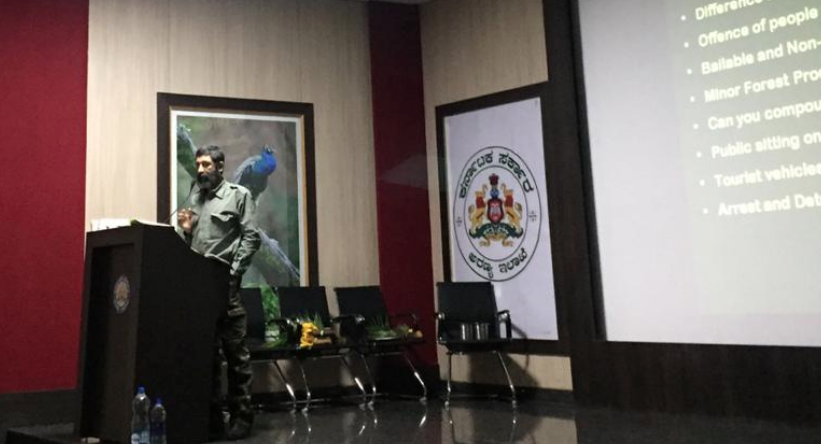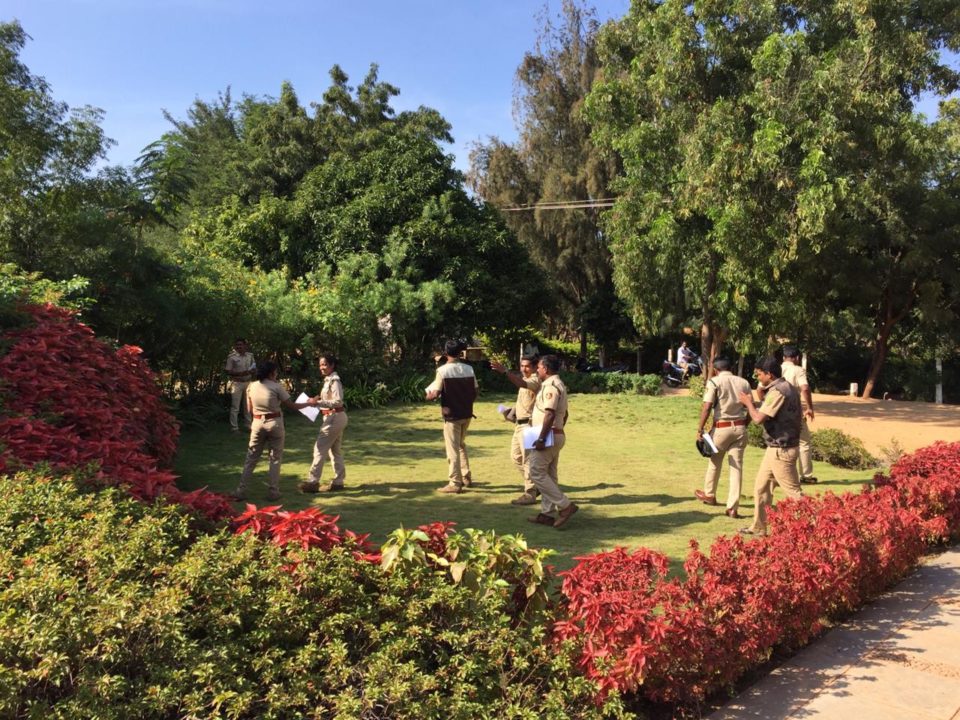Wildlife Conservation Society-India in collaboration with the Karnataka Forest Department (KFD) conducted a two-day training programme for the officers of KFD at the Daroji Sloth Bear Sanctuary from December 13. The workshop was held to sensitise KFD staff about wildlife laws in the country, its enforcement and the role played by them in successful combatting of wildlife trafficking.
The training began with Sahila Kudalkar, program manager, Counter Wildlife Trafficking (CWT), WCS-India, detailing the issues in effective implementation of the Wildlife Protection Act, 1972. The session gave participants a brief overview of the work undertaken by WCS-India.

Participants at the wildlife trafficking workshop
Praveen Bhargav of Wildlife First, a conservation advocacy organization, followed up with the scheme of the act and detailed relevant provisions relating to wildlife crime. He also explained the nature of the crime, the penalties attracted under the act as well as the powers and responsibilities laid down in it. He also conducted an engagement session on different kinds of wildlife crimes within a protected area.
The workshop focused on effective patrolling strategies, wildlife crime investigation cases, approaches that officers adopt to carry out thorough investigations, filing of complaints and elements that make up a good and sound complaints. The session stressed upon the need of water tight investigation to ensure better outcomes in judicial system.

Praveen Bhargav addressing the participants
Praveen also gave an outline of the way a complaint should be drafted and stressed on areas which are often overlooked leading to discrepancies in the complaint.
Sahila conducted a session on identification of commonly trafficked wildlife, their parts and products. The session gave participants examples of commonly trafficked species such as the tiger, elephant, pangolin etc., and explained methods of identifying the said species.

Participants taking part in interactive sessions
Under a field exercise, the participants were divided into three teams and mock crime scenes were set up. The teams were asked to investigate the crime and fill out a Wildlife Offence Report based on their investigation. The session was conducted in Kannada so as to reach a wide audience and saw great reception with the participants interacting and asking questions.
The workshop ended with a discussion on the issues the participants had faced, and experts came up with suggestions on how to make patrolling more effective.